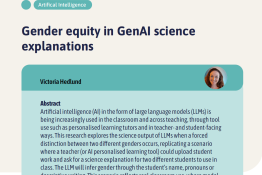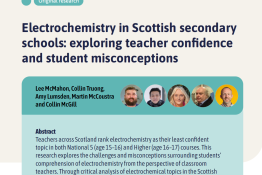Beyond the numbers: embedding metacognition in GCSE physics problem-solving
Issue 395 | Page 30 | Published Nov 2025
Description
Rebecca Mack explores how metacognitive strategies help her students tackle physics calculations more thoughtfully.
References
Black, P. and Wiliam, D. (1998) Assessment and classroom learning. Assessment in Education: Principles, Policy & Practice, 5(1), 7–74.
Boohan, R. and Needham, R. (2016) The Language of Mathematics in Science: A Guide for Teachers of 11–16 Science. London: Association for Science Education.
www.ase.org.uk/mathsinscience
Education Endowment Foundation (EEF) (2019) Metacognition and Self-Regulated Learning: Guidance report. London: Education Endowment Foundation.
https://educationendowmentfoundation.org.uk/education-evidence/guidance-reports/metacognition
Rosenshine, B. (2012) Principles of Instruction: research-based strategies that all teachers should know. American Educator, 36(1), 12–19.
www.aft.org/sites/default/files/periodicals/Rosenshine.pdf
More from this issue
Abstract
Artificial intelligence (AI) in the form of large language models (LLMs) is being increasingly used in the...
Henry Ward shares a linguistic–rhetorical approach to building higher-order literacy skills in science.
Resource production...
Abstract
Teachers across Scotland rank electrochemistry as their least confident topic in both National 5 (age 15–16) and...




